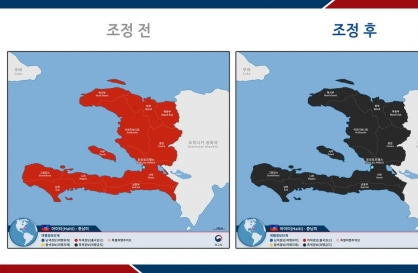Out of curiosity, television viewers are channel surfing between the four “general programming” pay-TV channels that went on air simultaneously last week. All of a sudden, they now have seven channels to choose from instead of three for prime time news as well as dramas and documentaries. It is fun, if a little cumbersome, but many viewers also feel uncomfortable hearing the political noise concerning this so-called “big bang” in the media industry.
Opposition lawmakers declined invitation to a joint congratulatory event on the launching of TV Chosun, JTBC, Channel A and MBN on Wednesday. To them, the entry of these new cable networks owned by three conservative and a major business dailies meant the culmination of the Lee Myung-bak administration’s media manipulation to allow its supporters a monopoly in the industry.
Until the commencement last week of the four comprehensive channels plus a news only network, News Y, the Lee administration and the ruling Grand National Party made extraordinary efforts to realize a dramatic shift in the broadcasting business in the name of deregulation and diversification to increase global competitiveness in the era of new media. Yet, the liberal opposition looked at the process as a government move to reward the conservative media for their help in the change of power.
The GNP railroaded a set of media-related laws in 2009 against diehard resistance from opposition parties. The new law lifted the time-honored separation between newspaper and broadcaster ownership. Cut-throat competition started among the Chosun, JoongAng and Dong-A dailies and the Maeil Business Newspaper to get the Korea Communications Commission license. At the end, all four were given licenses in what was widely criticized as an irresponsible decision.
There were further supportive measures for the new channels, which now have a platform to compete with the existing terrestrial broadcasters KBS, MBC and SBS. They can broadcast for 24 hours a day, put commercials in the middle of programs and sell ads directly, not via a commission-taking agency. To ensure easy access, the KCC arranged with station operators to give them lower channel numbers.
Still, everyone at the joint launch must have seen long, hard struggle ahead for the new channels as they are aware of what it means to feed more mouths from the same ― or rather shrinking ― pot. The four channels are to cut into an advertisement market of 3.5 trillion won ($3 billion) and they have to raise a combined 1.2 trillion, or 34 percent of the total for the broadcasting industry, to stay afloat. If their respective ratings remain below 2 percent until 2015, as experts predict, making such inroads will be impossible.
The bleak financial prospects and lingering doubts about the new broadcasters’ political inclination are apparently cooling general public interest in their programs, laboriously prepared by recruits from existing networks and energetically promoted by their affiliate newspapers. SNS messages express disappointment with celebrities who appeared in the new channels while some bloggers even call on viewers to use the locking function to block the new channels from their TVs.
It is unfortunate that reactions to their launch are so politicized. The new broadcasters may blame the declining support for the Lee administration and the ruling bloc, but it is their sublime task to prove that they do not deserve any political prejudice. They should not forget that the three conservative dailies have unleashed the harshest criticisms of political imbalance and sensationalism in the contents of the existing national networks, as well as immorality, profanity and violence in TV dramas.
From the first week, executives and producers will be realizing the difficulties of chasing the twin goals of profit-making and responsible broadcasting, particularly in the extraordinary environment of multiple channels launched on the same day. Viewers have great anxiety watching what they call a game of chicken, but the new channels can make miracles, if they faithfully follow the principles the newspapers have hitherto emphasized.
Opposition lawmakers declined invitation to a joint congratulatory event on the launching of TV Chosun, JTBC, Channel A and MBN on Wednesday. To them, the entry of these new cable networks owned by three conservative and a major business dailies meant the culmination of the Lee Myung-bak administration’s media manipulation to allow its supporters a monopoly in the industry.
Until the commencement last week of the four comprehensive channels plus a news only network, News Y, the Lee administration and the ruling Grand National Party made extraordinary efforts to realize a dramatic shift in the broadcasting business in the name of deregulation and diversification to increase global competitiveness in the era of new media. Yet, the liberal opposition looked at the process as a government move to reward the conservative media for their help in the change of power.
The GNP railroaded a set of media-related laws in 2009 against diehard resistance from opposition parties. The new law lifted the time-honored separation between newspaper and broadcaster ownership. Cut-throat competition started among the Chosun, JoongAng and Dong-A dailies and the Maeil Business Newspaper to get the Korea Communications Commission license. At the end, all four were given licenses in what was widely criticized as an irresponsible decision.
There were further supportive measures for the new channels, which now have a platform to compete with the existing terrestrial broadcasters KBS, MBC and SBS. They can broadcast for 24 hours a day, put commercials in the middle of programs and sell ads directly, not via a commission-taking agency. To ensure easy access, the KCC arranged with station operators to give them lower channel numbers.
Still, everyone at the joint launch must have seen long, hard struggle ahead for the new channels as they are aware of what it means to feed more mouths from the same ― or rather shrinking ― pot. The four channels are to cut into an advertisement market of 3.5 trillion won ($3 billion) and they have to raise a combined 1.2 trillion, or 34 percent of the total for the broadcasting industry, to stay afloat. If their respective ratings remain below 2 percent until 2015, as experts predict, making such inroads will be impossible.
The bleak financial prospects and lingering doubts about the new broadcasters’ political inclination are apparently cooling general public interest in their programs, laboriously prepared by recruits from existing networks and energetically promoted by their affiliate newspapers. SNS messages express disappointment with celebrities who appeared in the new channels while some bloggers even call on viewers to use the locking function to block the new channels from their TVs.
It is unfortunate that reactions to their launch are so politicized. The new broadcasters may blame the declining support for the Lee administration and the ruling bloc, but it is their sublime task to prove that they do not deserve any political prejudice. They should not forget that the three conservative dailies have unleashed the harshest criticisms of political imbalance and sensationalism in the contents of the existing national networks, as well as immorality, profanity and violence in TV dramas.
From the first week, executives and producers will be realizing the difficulties of chasing the twin goals of profit-making and responsible broadcasting, particularly in the extraordinary environment of multiple channels launched on the same day. Viewers have great anxiety watching what they call a game of chicken, but the new channels can make miracles, if they faithfully follow the principles the newspapers have hitherto emphasized.
-
Articles by Korea Herald



















